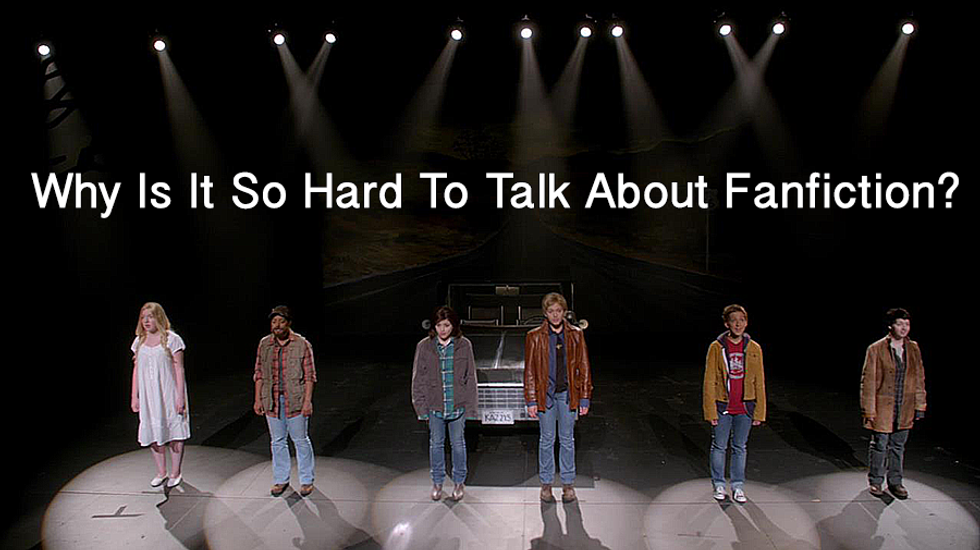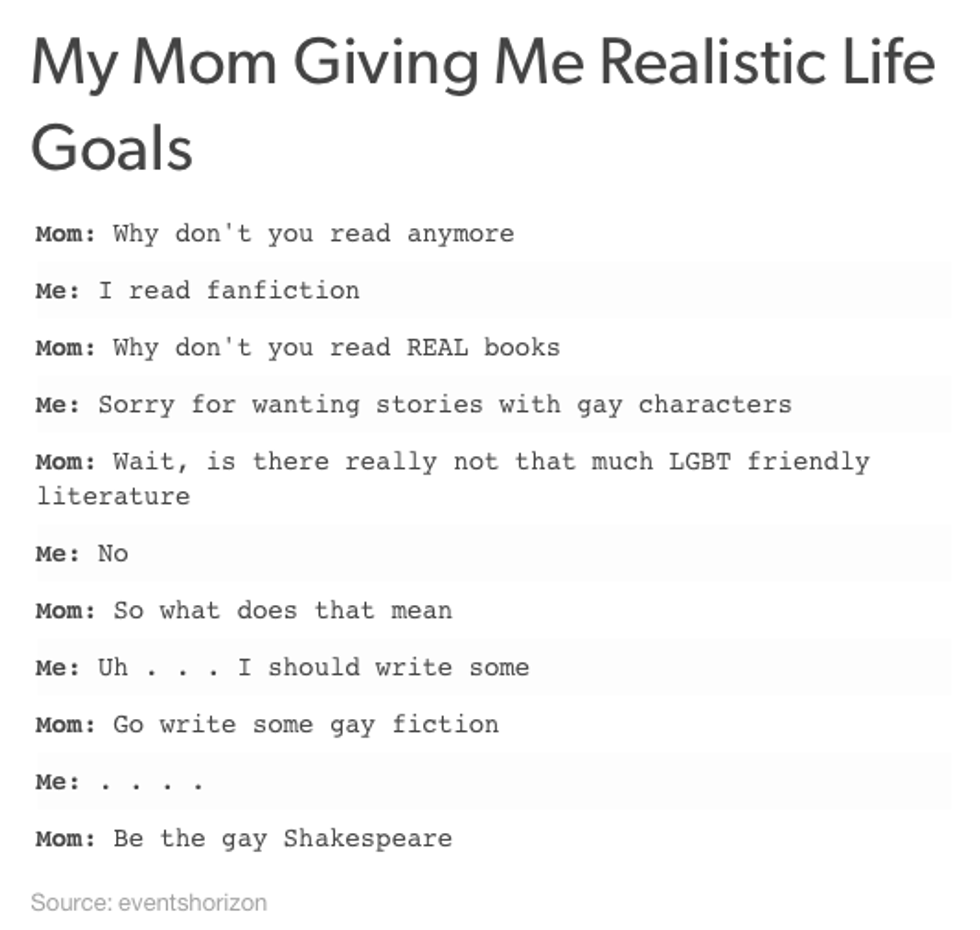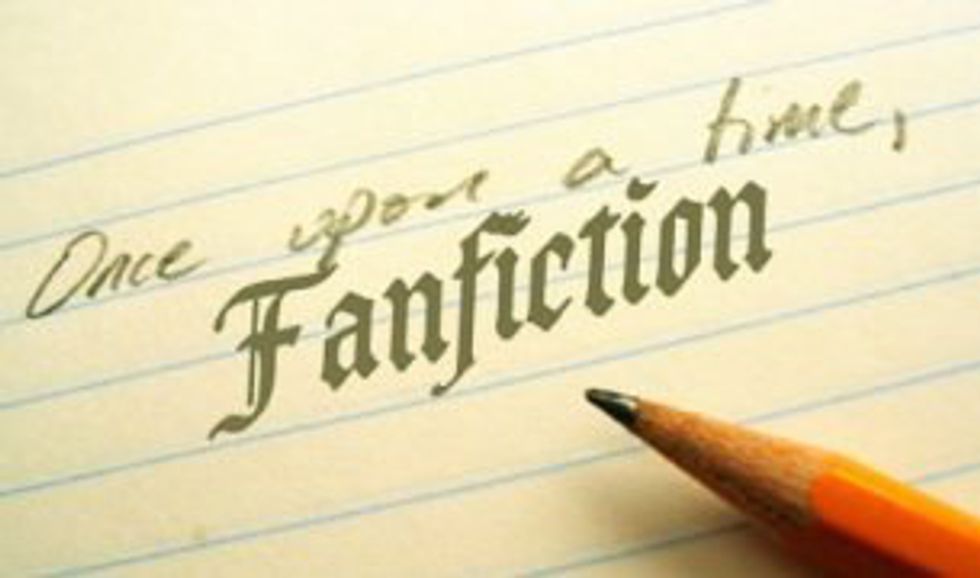According to the Collins English Dictionary, fanfiction is “fiction written around previously established characters invented by other authors.” According to Wikipedia, fanfiction is “fiction about characters or settings from an original work of fiction, created by fans of that work rather than by its creator. It is a popular form of fan labor, particularly since the advent of the Internet.” And according to Urban Dictionary fanfiction is “when someone takes either the story or characters (or both) of a certain piece of work, whether it be a novel, TV show, movie etc, and create their own story based on it.” The reason for my addition of Urban Dictionary is that the writer of this definition, username Mistaki, goes on to talk about what fanfiction means to the writers and readers. While you can put a definition to fanfiction, the personal meaning it has to a fan cannot be explained in the two lines—sometimes three—noun, verb, adjective, and example format.

Fanfiction is now making its transition from text on your internet screen to text onto published and popularized novels, and in some cases, movies. Just like any shift in culture, the shift of fanfiction from personal pleasure to mainstream forms of media is gathering criticism and analysis for its change. While it’s true that many works of fanfiction have been published, many do not believe fanfiction to be literature and have spoken about the lack of originality and effort that is tied with fanfiction. But as for any argument, there are two sides, one for and one against, and the side for fanfiction to be considered literature is steadily growing.
In a very long and annotated college research paper of mine, I was to find out what literature meant. To put an eight page paper into four sentences, I found out that, “literature most commonly refers to works of the creative imagination, including poetry, drama, fiction, nonfiction, journalism, and in some instances, song.” Literature has nothing to do with how old the novel, or even the writer, is, but more to do with “represent(ing) the culture and tradition of a language or a people.” Back to my motif of definitions, according to the Collins Dictionary, literature is “writing that has lasting value as art.” The common theme here is that literature is more culture than writing.
Fanfiction has been able to reflect the culture in its writing and I would actually argue that it is easier for fanfiction to do this, as it is not only a culture of its own, but an accepting culture. Many famous ships (romantic pairings) on fanfiction sites are non-traditional. I would argue that the reason for this is that the under-representation of those non-traditional pairings in mainstream media causes there to be a desire to see that representation—especially with as many social movements and changes that our current culture has seen. Fanfiction is an easy outlet for that frustration. Not only has it been able to represent the non-traditional romance that is starting to become more apparent in the culture, but is able to freely delve into issues pertaining different mental and physical deficiencies, non-heterosexuality, social taboos, and many other aspects that are not acceptable in common literature. Fanfiction is better able to analyze these issues all with a nice blanket of known and loved characters.
The more popular argument facing fanfiction in general has to do with originality. Because of the fact that fanfiction is based on pre-created works, the issue, and sometimes legal conflict, is put into play. While it is true that fanfiction's foundation is tied to original works, the reason it is so heavily referenced is that fanfiction's label has that connotation. If we look back in history, may famous works could be considered fanfiction and in turn, be questioned about the originality of the work. Examples of this would be, Paradise Lost by John Milton, Dante’s Divine Comedy, and The Aeneidby Virgil. Call me crazy, but I don’t believe Milton was able to get copyrights from God himself to write his fanfiction on the fall of Satan. Of course, heavily adding to the list of fanfiction written will not dissuade the critics.
While it is true that the characters and plot events have already been put into place, a fanfiction author has the ability to change, extrapolate, replace, or even discard these built in frameworks. A writer or director has a set word and time limit to gather the attention of the audience and has to move the plot quickly enough to not lose audience interest. A fanfiction author does not have that limit, as the reader already has interest—not saying that they do not have to work to keep the reader’s interest—and so is able to expand on the work that the original creator did not. For example: character analysis and development based fanfictions, built-in scenes to explain canonical events (but why did Satan fall?), and many other formats. Yet, Canon Compliant (the official tag) is not the only type of fanfiction written. A more popular tag is “AU” or ‘Alternate Universe-Canon Divergence’ which has many sub-tags such as, Historical, Crossover, Dystopian, and Modern, to name very few.

This article will not change the world, but it will hopefully change your view on fanfiction being considered literature. Fanfiction is able to represent the culture it is surrounded by, more so than mainstream media as it is written by all demographics. Fanfiction is able to be original, maybe not in its foundation, but instead in its growth. The label fanfiction can be given to many pieces of works, not only on specific fanfiction websites, but also famous and ancient pieces of writing.
This is why fanfiction should be considered literature.























